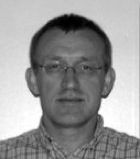
Email: hic at cc.gatech.edu
Webpage:http://www.cc.gatech.edu/~hic
Henrik I. Christensen is the KUKA Chair of Robotics and a professor of Computing at Georgia Tech. He is also the director of Robotics and Intelligent Machines @ GT. He does research on sensing, estimation and systems design. He earned M.Sc. and Ph.D. degrees from Aalborg University, 1987 and 1989, respectively. He has published more than 250 contributions in vision, robotics and AI. Dr. Christensen has held position at Aalborg University and Royal Institute of Technology before joining Georgia Tech. He serves on the editorial board of IJRR, Service Robotics, Autonomous Robots, and Trend and Foundations in Robotics. His work has been commercialized by a number of companies. He served as the founding chairman of EURON (1999-2006).
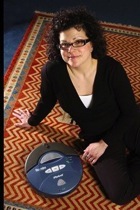
Email: forlizzi at cs.cmu.edu
Webpage: http://goodgestreet.com/personal/karate.html
Jodi Forlizzi holds interdisciplinary appointments as associate professor both in Carnegie Mellon’s School of Design and its Human-Computer Interaction Institute. She is also The A. Nico Habermannn Chair in the School of Computer Science. She teaches graduate level courses in advanced interface and interaction design. She is interested in how people experience products, in order to develop a theory of experience as it relates to interaction design.

Email: grupen at cs.umass.edu
Webpage: http://www-robotics.cs.umass.edu/~grupen/home.html
Professor Grupen is a Professor of Computer Science at the University of Massachusetts. His primary research interests include: robot learning and adaptation, sensor-based modeling and control, dexterous robots, multimodal sensory interpretation, resource allocation, and architectures for real-time autonomous systems. Grupen received a B.A. in Physics from Franklin and Marshall College, a M.S. in Mechanical Engineering from Penn State University, and a Ph.D. in Computer Science from the University of Utah in 1988. Professor Grupen is the Director of the Laboratory for Perceptual Robotics at UMass, an editor for AIEDAM (AI in Engineering Design and Manufacture), and the Robotics and Autonomous Systems Journal, and serves on several program committees.
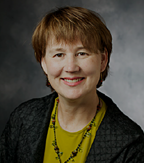
Email: phinds at stanford.edu
Webpage: http://www.stanford.edu/dept/MSandE/people/faculty/hinds/
Pamela J. Hinds is an Associate Professor with the Center on Work, Technology, & Organization in the Department of Management Science & Engineering, Stanford University. She studies the effect of technology on groups. Pamela has conducted extensive research on the dynamics of geographically distributed work teams, particularly those spanning national boundaries. She explores issues of culture, language, shared identity, conflict, and the role of face-to-face meetings in promoting knowledge sharing and collaboration. Pamela also conducts research on professional service robots in the work environment, examining how people make sense of them and how they affect work practices.
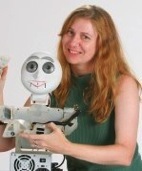
Email: mataric at usc.edu
Webpage: http://www-robotics.usc.edu/~maja/
Maja Mataric is a professor in the Computer Science Department and
Neuroscience Program at the University of Southern California, founding director of USC's interdisciplinary Center for Robotics and Embedded Systems (CRES), co-director of the USC Robotics Research Lab, and Senior Associate Dean for Research in the Viterbi School of Engineering. Her research is inspired by the dual goals of 1) gaining novel insights into human behavior and cognition through human-machine interaction and 2) developing robotic systems capable of providing personalized assistance individually (in convalescence, rehabilitation, training, and education) or in teams (in habitat monitoring and emergency response). Her lab is currently working with robotics for autism spectrum disorder, post-stroke and post-traumatic-brain-injury rehabilitation, Alzheimer's Disease and dementia care, and special education.

Email: murphy at cse.usf.edu
Webpage: http://www.cse.usf.edu/~murphy/
Robin Roberson Murphy received a B.M.E. in mechanical engineering, a M.S. and Ph.D in computer science (minor: Computer Integrated Manufacturing Systems) in 1980, 1989, and 1992, respectively, from Georgia Tech, where she was a Rockwell International Doctoral Fellow. She is a Professor in the Computer Science and Engineering Department at the University of South Florida with a joint appointment in Cognitive and Neural Sciences in the Department of Psychology. From 1992 to 1998, she was an assistant professor in the Department of Mathematical and Computer Sciences at the Colorado School of Mines. Prof. Murphy joined USF in 1998.

Email: nickroy atmit.edu
Webpage: http://web.mit.edu/nickroy/www/ and
http://www.csail.mit.edu/biographies/PI/bioprint.php?PeopleID=2641
Nicholas Roy is the Boeing Assistant Professor of Aeronautics and
Astronautics at MIT, and a member of the Computer Science and Artificial Intelligence Laboratory. He received his B.Sc. and M.Sc. from McGill University, and his Ph.D. in Robotics from Carnegie Mellon University. His research focuses on the problems that result from uncertainty in the world, such as sensing errors, unpredictable actions and uncertain or incomplete models. He believes that interacting with people embodies all of these challenges, and that probabilistic, decision-theoretic models are ideally suited for making decisions in the face of human-generated uncertainty.
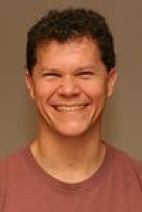
Email: trafton at itd.nrl.navy.mil
Webpage: http://www.nrl.navy.mil/aic/iss/aas/poc-trafton.php
Greg Trafton is section head of the Intelligent Systems Section at the Naval Research Laboratory in Washington, DC. He is a cognitive scientist with interests in HRI, interruptions/resumptions, and the cognition of complex visualizations. Greg received his BS in computer science (second major in psychology) from Trinity University and his Ph.D in cognitive psychology from Princeton University. He builds computational cognitive models (primarily in ACT-R/E) and puts those models on robots. From a robotic viewpoint, his models facilitate HRI by using the same strategies and representations that people do. From a cognitive viewpoint, his models integrate different cognitive faculties (memory, goals, vision, audition, spatial cognition, etc.) to explain how high level intelligent behavior emerges and can be expressed computationally.
Student Speakers

Email: cbethel at gmail.com
Cindy Bethel is a National Science Foundation Graduate Research Fellow and a Doctoral Candidate in Computer Science and Engineering with the Institute for Safety Security Rescue Technology at the University of South Florida. The focus of her dissertation research is Non-Facial and Non-Verbal Affective Expression in Appearance-Constrained Robots for use in search and rescue applications. Her research interests focus in the areas of Human-Robot Interaction, robotics, artificial intelligence, and affective computing. She received a B.S. degree in Computer Science from the University of South Florida in May 2004.
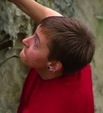
Email: fbroz at cmu.edu
Webpage: http://www.cs.cmu.edu/~abruce/
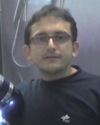
E-mail: agodesa at unina.it
Webpage: http://wpage.unina.it/agodesa
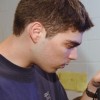
Email: dfseifer at usc.edu
Webpage: http://robotics.usc.edu/~dfseifer

Email: xavier.giralt at upc.edu
Xavier Giralt (S’07) was born in Barcelona, on October 17, 1978. He studied at Engineering School of Barcelona, Spain, from 1996 to 2002. He received the B.Sc.(Eng.) degree from the Technical University of Catalonia (UPC), where he is currently undertaking a PhD. He is also alumnus of the International Space University, SSP in Strasbourg 2006 and Teaching Associate in Beijing 2007. His first research focused on underwater vehicle robotic arms for telemanipulation, and a control system for an underwater autonomous vehicle. In 2002 he worked with the Corporacio Sanitaria Parc Tauli, developing new robotic surgical tools for laparoscopic surgery, and an automatic lighting system for operating rooms. His current research is related to telemanipulation, haptics and human-machine interaction in robotic systems.

Email: fwph at wustl.edu
Webpage: http://www.cse.wustl.edu/~fwph/
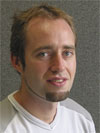
Email: t.kaupp at cas.edu.au
Webpage: http://www.cas.edu.au/content.php/232.html?personid=45

Email: michalowski at cmu.edu
Webpage: http://www.cs.cmu.edu/~marekm/

Email: yasser at ii.ist.i.kyoto-u.ac.jp
Webpage: http://www.ii.ist.i.kyoto-u.ac.jp/~yasser/

Email: chao at cs.umass.edu
Webpage: http://chaosfuture.com/resume/
